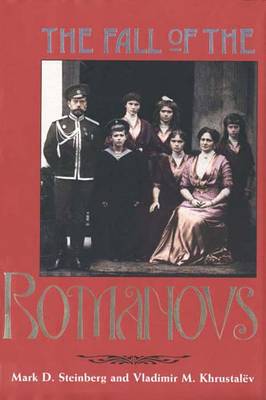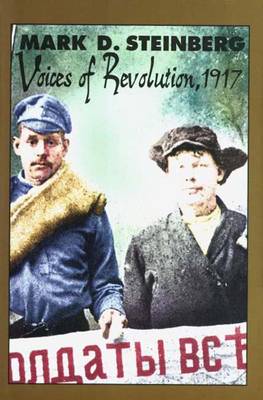Annals of Communism (YUP)
2 total works
The Fall of the Romanovs
by Mark D. Steinberg and Vladimir M. Khrustalev
Published 27 September 1995
The story of the arrest, captivity, and execution of the last tsar of Russia and his family during the revolution of 1917-1918 has been recounted - and romanticized - for decades. This study explores the full range of events and reveals the thoughts, perceptions and judgments of the individuals involved - Nicholas and Alexandra, their children, and the men who guarded and eventually killed them. The book is based on documents and photographs from recently opened Russian archives and from Western collections. The documents, which appear for the first time in English (the language in which some of them were originally written), include correspondence between Nicholas and Alexandra during the February 1917 revolution; portions of their diaries; minutes of government meetings, telegrams, and other official papers concerning the arrest, confinement, and execution of the Romanovs; letters written by the captive tsar and his family to friends and relatives; appeals from Russian citizens concerning the fate of the Romanovs; and testimonies by the revolutionaries who guarded and executed them.
Although much has been written about the political history of the Russian revolution, the human story of what the revolution meant to ordinary people has rarely been told. This book gives voice to the experiences, thoughts, and feelings of the Russian people, including workers, peasants, and soldiers, as expressed in their own words during the vast political, social, and economic upheavals of 1917. The documents in the volume include letters from individuals to newspapers, institutions, or leaders; collective resolutions and appeals; and even poetry. Selected from the State Archive of the Russian Federation in Moscow, nearly all the texts are published here for the first time. In these writings we hear the voices of ordinary Russians seeking to understand the revolution and make sense of the values, ideals, and discontents of their turbulent times. Not only do they speak of their particular needs and desires, notably for solutions to the economic crisis or an end to the war, they also reveal how relatively unprivileged Russians thought about such questions as political power, freedom, justice, democracy, social class, nationhood, and civic morality.
Mark Steinberg provides introductions to the documents, explaining the language of popular revolution in Russia and setting the writings in the context of the history of the time.
Mark Steinberg provides introductions to the documents, explaining the language of popular revolution in Russia and setting the writings in the context of the history of the time.

